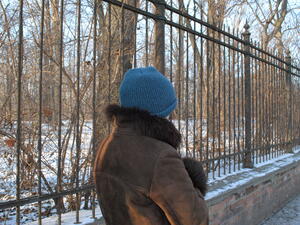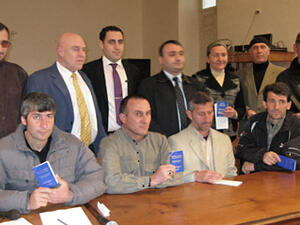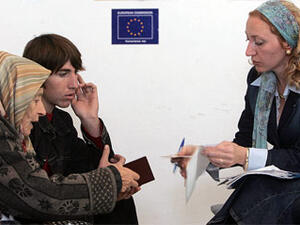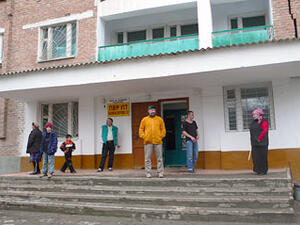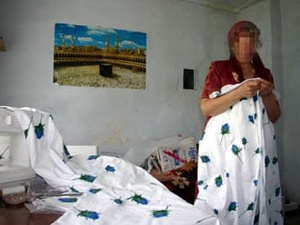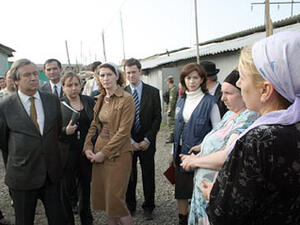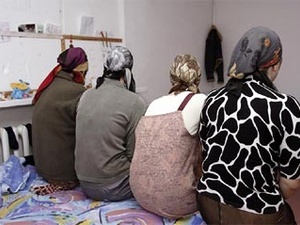Ingushetia camp closed; UNHCR concerned about former residents
Ingushetia camp closed; UNHCR concerned about former residents
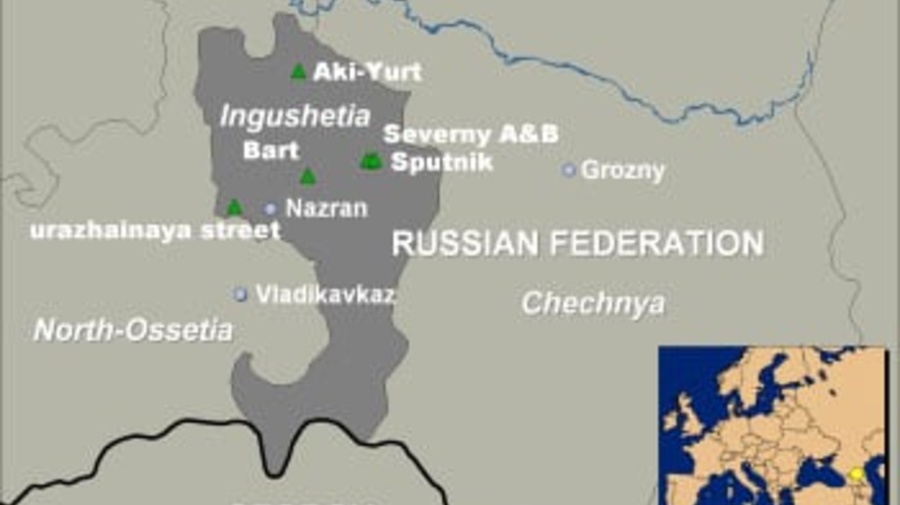
AKI YURT, Ingushetia, December 3 (UNHCR) - Russian authorities have closed down Ingushetia's Aki Yurt camp, evicting some 1,500 displaced Chechens despite appeals by the UN refugee agency, which is now trying to follow up on their location and condition.
Russian authorities had earlier announced that Aki Yurt camp in northern Ingushetia would be closed down on Sunday. By today, all the tents were gone and the last three families left for Chechnya. Several large tents used by non-governmental organisations (NGOs) for activities in the camp also remained, and the Ingush authorities have asked the NGOs to dismantle them.
Staff from UNHCR and other UN agencies were not allowed to enter the camp on Sunday and Monday as local authorities claimed their presence would give displaced people there false hopes.
According to initial estimates by local monitors in the camp, just under half of Aki Yurt's population remains in Ingushetia, presumably living either with host families or in existing temporary settlements. Up to 300 people - many of them elderly - are living in six temporary settlements adjacent to Aki Yurt camp. Another 21 families continue to live in mud brick houses they had managed to build on the former campsite.
Concerned about housing and winter assistance, UNHCR staff and local monitors are trying to trace the location and follow up on the condition of Aki Yurt's former residents who remain in Ingushetia.
In view of harsh winter conditions - temperatures dropped to -5°C today - the agency has sought assurances from Ingush authorities that gas and electricity will remain available to those staying on or near the campsite. However, supplies were cut this afternoon in all the mud brick houses and five out of six temporary settlements. Families were seen burning wood from the dismantled tents to keep warm.
UNHCR is trying to obtain permission to use "box tents" for former Aki Yurt inhabitants who may need them.
As for those who have gone back to Chechnya, UNHCR - which has no presence in the republic - has asked its implementing partners in Chechnya to try to identify people who have returned from Aki Yurt in recent days.
Prior to recent events in Aki Yurt, there were some 110,000 displaced Chechens living in Ingushetia, with approximately 20,000 of them in six tent camps.
Recent statements by Russian authorities indicate that they intend to close down all tent camps in Ingushetia by the end of the year. For now, military presence is still in place near the four tent camps in Sleptsovskaya, Ingushetia, causing high anxiety among the residents, especially children. UNHCR has repeatedly stressed the urgent need for the replacement of worn-out or damaged tents there. Local authorities allowed the repair work at first, but recently ordered UNHCR to stop such assistance to the tent camps.


